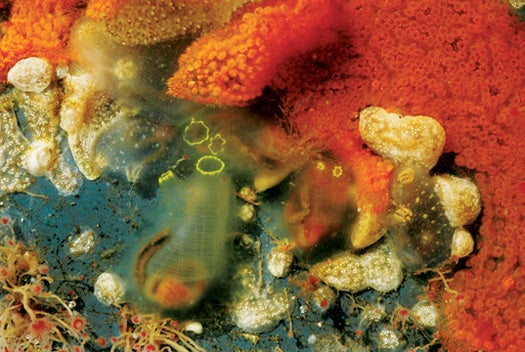Bold Plans to Save the Seas
Two years ago, I sat with roughly 1,500 fellow attendees of the annual TED Conference and listened as one of...

Two years ago, I sat with roughly 1,500 fellow attendees of the annual TED Conference and listened as one of the world’s greatest explorers explained why we must stop plundering the oceans and start protecting them—immediately. “Business as usual means that in 50 years, there may be no coral reefs and no commercial fishing, because the fish will simply be gone,” the explorer said. “Imagine the ocean without fish. Imagine what that means to our life-support system.”
“We have to do everything possible, and we have to do it now.”There’s a decent chance you’ve heard of Sylvia Earle, the author of that talk, but it’s quite possible you haven’t, because in this culture oceanographers aren’t astronauts; even a great scientist who’s led at least 50 expeditions and spent more than 6,000 hours underwater is never going to have the name recognition of a Buzz Aldrin. And that priority gap is reflected pretty sharply in funding, too. As another marginally famous ocean explorer, Bob Ballard, commented in an earlier TED talk, “NASA’s annual budget to explore the heavens . . . would fund the National Oceanic and Atmospheric Administration’s budget to explore the oceans for 1,600 years.”
Which is not to suggest that NASA is overfunded. It’s not. But we have chronically neglected to understand our planet’s most copious ecosystem —more than 99 percent of the living space on Earth is ocean—while at the same time exploiting and poisoning it. Our special report in this issue, “Seven Ways to Save the Seas”, lays out how bad things really are: radically reduced fish stocks, a third of the world’s coral destroyed, 405 “dead zones,” acidity on the rise, and plastic garbage everywhere. And in true PopSci style, we detail some solutions that can be (and in some cases are being) implemented.
But as an individual, it’s easy to feel inadequate in the face of a crisis this huge. As Earle herself told us, “Asking which way is best to save the oceans is like asking which way is best to save your heart. The answer is we have to do everything possible, and we have to do it now.”
So what should you do? Anything and everything. Start with getting informed, and see where that takes you. Once you’ve digested our report, I strongly recommend you take in Earle’s talk at ted.com for your next dose of insight and inspiration, and support her quest to protect large swaths of ocean at Mission Blue.
Read the solutions: